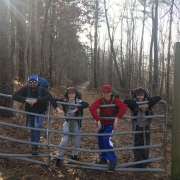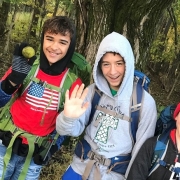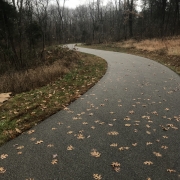What’s Wrong with My Teenager?
I’ve been listening to a series of lectures on Audible entitled, “Understanding the Mysteries of Human Behavior,” by Mark Leary, Ph.D. He’s a professor of Psychology and Neuroscience at Duke University. I’m going to be sharing several of his topics over the next few months. The one that caught my eye was, “Why Don’t Adolescents Behave like Adults?” Here are some of his thoughts:
First, there tends to be more family conflict when kids transition into adolescence.
The good news is that this conflict generally is short-lived (lasting the first couple of years of adolescence) and generally focused on minor issues such as their personal appearance, dating, family rules, and curfews. The reason for these conflicts seem to be rooted in the teen’s desire to establish their independence, which is a healthy and important part of their development.
Second, Teens tend to display more rapid and extreme mood swings when they enter into adolescence.
Certainly, hormones play a role in these emotional swings, but researchers are looking at the role that stress plays in mood instability. Leary points out that, “Adolescence involves major personal and social changes and transitions that would be stressful at any age, but for a young person without much life experience, these changes can be overwhelming.” Increased stress equals increased mood instability.
Third, teenagers tend to display an increase in risky behaviors which, as Leary points out, “have the potential to harm them or others.”
I see a lot of these teens, and here’s what’s happening in their brains. This increase in risky behavior is due to the interplay between two distinct networks in the brain. The first network is the socioemotional network. This network process rewards, especially social rewards. As a child enters adolescence, the reward center of the brain changes and teenagers begin to pay more attention to potentially rewarding experiences. The cognitive control network controls what is typically called executive functioning and involves functions such as planning and impulse control. Unfortunately, this network develops gradually throughout adolescence and matures by the mid-twenties. One system is telling the teen to speed up and the other is telling them to slow down. Unfortunately, the cognitive control network can be outmatched by the socioemotional network. It’s like putting a new driver behind the wheel of a race car.
So, to address the question, “What’s wrong with my teenager,” the answer is nothing.
Teens are becoming something. They are becoming adults and stretching the wings that one day they will be using independently. They are testing boundaries that one day will not be there and they are exploring and taking risks that one day will be wonderful growth experiences. But until they become adults, they need our guidance, support, teachable moments, patience, and they need a gradually increased amount of freedom to become the people that you have raised them to become.
I often hear extended family members counsel younger parents. The younger parents are overwhelmed and exhausted with the the task of raising children. Aunt Susan will respond with, “If you think it’s bad now, wait until they’re teenagers.” I couldn’t disagree more! Yes, it’s painful at times watching them transition into an adult, but it’s also one of the most reward times that you will have with them. Understanding what’s going on is the key to looking forward to it and even enjoying it!!!!









